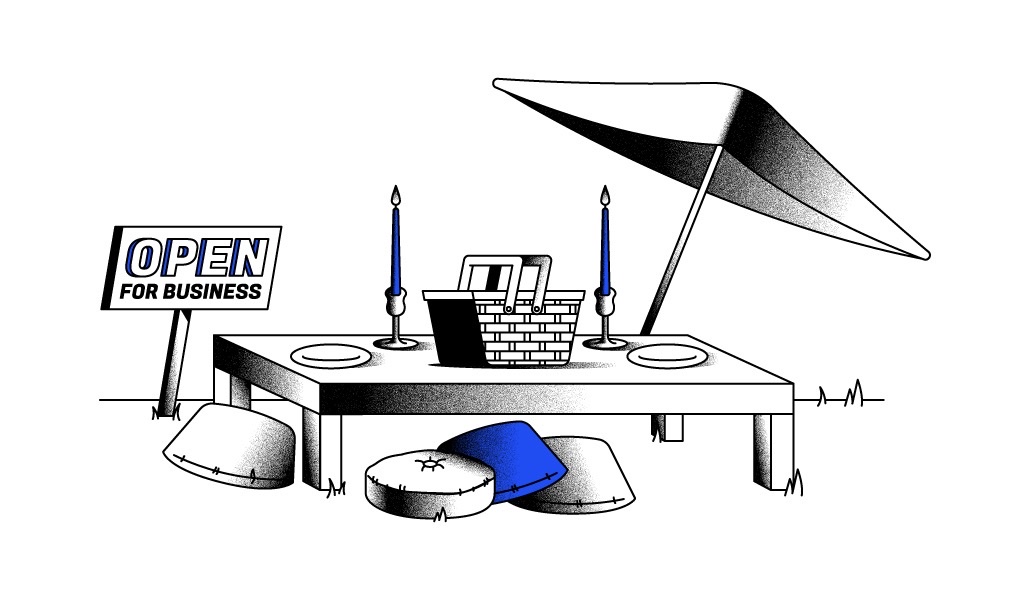‘A happier working population’: How the 4-day week is fuelling more passion-rooted startups

In June 2022, Bryony Jones resigned from her job as branch manager at a major U.K. bank in Cornwall, U.K. to pursue her flower business full-time.
She had dropped to a four-day week after the sudden death of her father in August 2021, spending more time developing her micro-flower farm, which she started as a hobby in 2020 after a period of ill health. “If it doesn’t work out, I won’t regret the happiness horticulture brings to my life in the form of small-scale farming,” she said.
Jones is not alone in using a four-day week to build a business on the fifth day. In a 2021 survey run by Henley Business School (part of Reading University in the U.K.), 37% of employees indicated that a career in which they had multiple jobs or employers would be a “desirable way to live,” up from 30% in 2019. The pandemic – specifically the enforced lockdowns it caused – prompted many people to re-evaluate their lives and regain a better work-life balance. Now, the increasingly popular four-day week is fuelling this trend further.
Alex Crisp has worked in food and retail communications and marketing in the U.K. for over 10 years. A keen artist, she used the first U.K. lockdown (March to June 2020) to work on her painting and drawing. “As I played around with different styles and shared my progress on Instagram I was really surprised (and flattered) by how much people seemed to enjoy some pattern designs.” It made her consider that it might work as a business.
Crisp dropped to a four-day week after returning from maternity leave in January 2022. Ostensibly the extra day was to help with childcare, but it gave her the space to develop her illustrating. She now runs a side business as an illustrator, selling homeware, cards and art prints online and through local businesses in Buckinghamshire, U.K. She works around her toddler. “It’s very much about what can be achieved on my phone or in my head, whether that’s emailing suppliers, ordering materials, planning, updating my website, posting on social media, reaching out to stockists or just thinking up new ideas.”
She uses her evenings to design or screen print products. “I love my work in comms and will always be doing this, but there’s always been a desire to have something of my own and I absolutely love all the challenges and learnings that come with it.”
New York-based CreativeX, which provides marketing technology to leading brands, and has offices in London too, implemented Elevate Fridays last summer after a successful 12-week, four-day working week trial. Founder and CEO, Anastasia Leng believes people are more than what they do for a living. “We all do a lot of things and wear a lot of hats, yet the thing we do to earn a living is the thing that seems to most define us. And I think that’s incredibly limiting.” She believes happy people do better work. “And being happy, at least to me, means making space to pursue other things that make me feel whole.”
Elevate Friday embraces this ethos. One London-based employee, Evie Miller, an enterprise sales development representative, is passionate about clothes design. She uses her Fridays to practise gathering pleats, French seams and puffy sleeves. “I have one-to-one lessons in a studio, learning pattern cutting and sewing techniques. When I’m not doing the practical stuff, I’m sourcing sustainable fabrics, luxury offcuts and unique details – and of course designing,” she said.
Think Productive, based in Brighton, U.K. with six additional global offices, has operated a four-day week since 2011. Jessica Scott, director, has used her four-day week to take her food blog from a hobby to a pop-up kitchen and catering business with her partner, a chef. Fridays see her setting up new menus, doing stock checks, processing expenses, helping run meals to customers and supporting in the kitchen. She says it wouldn’t have been possible to run the new business without a four-day week.
Miller intends to run her fashion business alongside her main employment. “I’m really happy I made the decision to move into a full-time job at CreativeX but I will always love a good old side hustle.”
Scott is happier and more balanced as a result. “It allowed me to earn some extra income, but the main positive was the ability to work on a passion,” she said.
Having happier, more fulfilled employees who have time to pursue a side hustle can be positive for employers too. Karen Plum, director of research and development at global consultancy, Advanced Workplace Associates said “Depending on the roles, it could be very positive as people could be acquiring skills, expertise and perspectives that could enrich their contribution to the other role.”
Plum adds that people can get very inward looking if they only problem solve with the same people. “Being open to other ideas and approaches is highly valuable to creativity and innovation,” she added.
Ben Cowgill, director of Manchester-based Insolvency Experts says enforced lockdowns during Covid saw entrepreneurialism flourish and, should the trend continue, there may be an increase in employees or sole traders with a more varied skill set. “It could also result in a happier working population as people are more likely to be doing things they enjoy.” He cites the potential downsides as possible shortages of labor in certain fields, as well as more people with uncertain monthly incomes.
Is there also a risk that a four-day week will encourage employees to leave their primary roles? Leng believes a four-day work week will see longer retention and happier, more productive teams. “If someone’s side hustle turns into a new career, I would genuinely celebrate that – our work philosophy would have enabled an opportunity for someone to transform their life, and that sounds like a pretty good place to me.”


